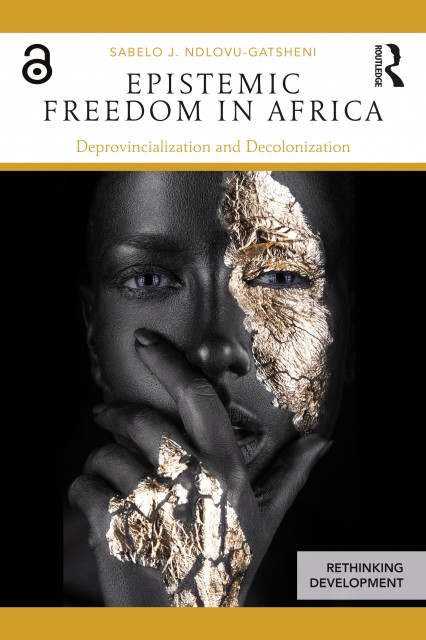For students looking for an introduction to decolonization, or faculty looking to catch up on conversations they have been missing (or conversations they have avoided or actively sought not take part in), Sabelo Ndlovu-Gatsheni has brought it together for you in Epistemic Freedom in Africa: Deprovincialization and Decolonization (2018). As the title implies, this book is rooted in the African perspective of decolonization, which makes it somewhat unique that books written from other vantage points (e.g. Mignolo). For those deeply embedded into these conversations, Sabelo's other work presents more of his own contributions, whereas this book summarizes much of what the major leaders have contributed (the book includes a lot of quoted content from these leading thinkers, which is a resource for those not familiar with those works). Two chapters are Open Access here.
Some notes:
"This affirmation and validation take the form of publication in the so-called international, high-impact and peer-reviewed journals. Europe and North America constitute the 'international' and the rest of the world is 'local'. Consequently, international, high-impact, and peer-reviewed journals and internationally respected publishing houses and presses are those located in Europe and North America. Highly ranked universities are located in Europe and North America. Taken together, these realities confirm the existence of epistemic hegemony. The signature of epistemic hegemony is the idea of 'knowledge' rather than 'knowledges'" (p. 8)
"Hountondji (1990: 10) distilled 13 "indices of scientific dependence". The first is dependence on technical apparatuses made in Europe and North America. The second is dependence on foreign libraries and documentation centres for up-to-date scientific information. The third is what he termed "institutional nomadism, a restless going to and fro" European and North American universities. The fourth dependence manifests itself as 'brain-drain'. The fifth is importation of theory from the North to enlighten the data gathered in the South. The sixth dependence is aversion to basic research and sticking to the colonial ideology of instrumentality of knowledge. The seventh problem is in choice of research topics that is determined by interests of the North where knowledge is validated (Hountondji 1990: 12). The eighth dependence is confinement to territorial specialisations in which African scholars are often reduced to native informants. The ninth form of dependence is that African scholars are engaged in scientific research that is of direct service to coloniality. The tenth issue relates to research into indigenous knowledge which eventually is disciplined to fit into the modes of Western science. The eleventh challenge is that of linguistic dependence on six European languages (English, French, German, Spanish, Italian and Portuguese) in teaching and research. The twelfth index of scientific dependence is a lack of communication among African scholars as most prefer "a vertical exchange and dialogue with scientists from the North than horizontal exchange with fellow scholars from the South" (Hountondji 1990: 13)." (p. 25-26)
"What emerges from these questions is the importance of the material to which students are exposed and the consciousness of the teachers in the delivery of the material. Most often one gets the impression that it is the quality of students that is discussed and very little is said about the quality of the teachers and their consciousness. There is a lot that is wrong with the academics produced by Western-style universities... If indeed the key problem with the African academics is that of consciousness caused by miseducation, then the focus on changing the very idea of the university as the factory that produced the academics and intellectuals should be accompanied by re-education of its products." (p. 84)
"It is not surprising that, as an institution, the Westernized university in Africa is today the key site of struggles for decolonization. In the first place, it is the universities that promised freedom of thought only to stifle it through religiously adhering to a Eurocentric epistemology and Western-centric cultures and practices. In the second place, the university has the highest concentration of young people who are eager to understand why the institution is still maintaining alienating Eurocentric cultures and is not resolving and question of cultural and practical relevance of what it delivers. In the third place, despite the institutional constraints, the university is still the space where ideas are explored endlessly. Finally, it is within the confines of the Westernized university located in Africa that the youth encounter face-to-face epistemic and pedagogical brutalities that provoke them to rebel." (p. 163)

